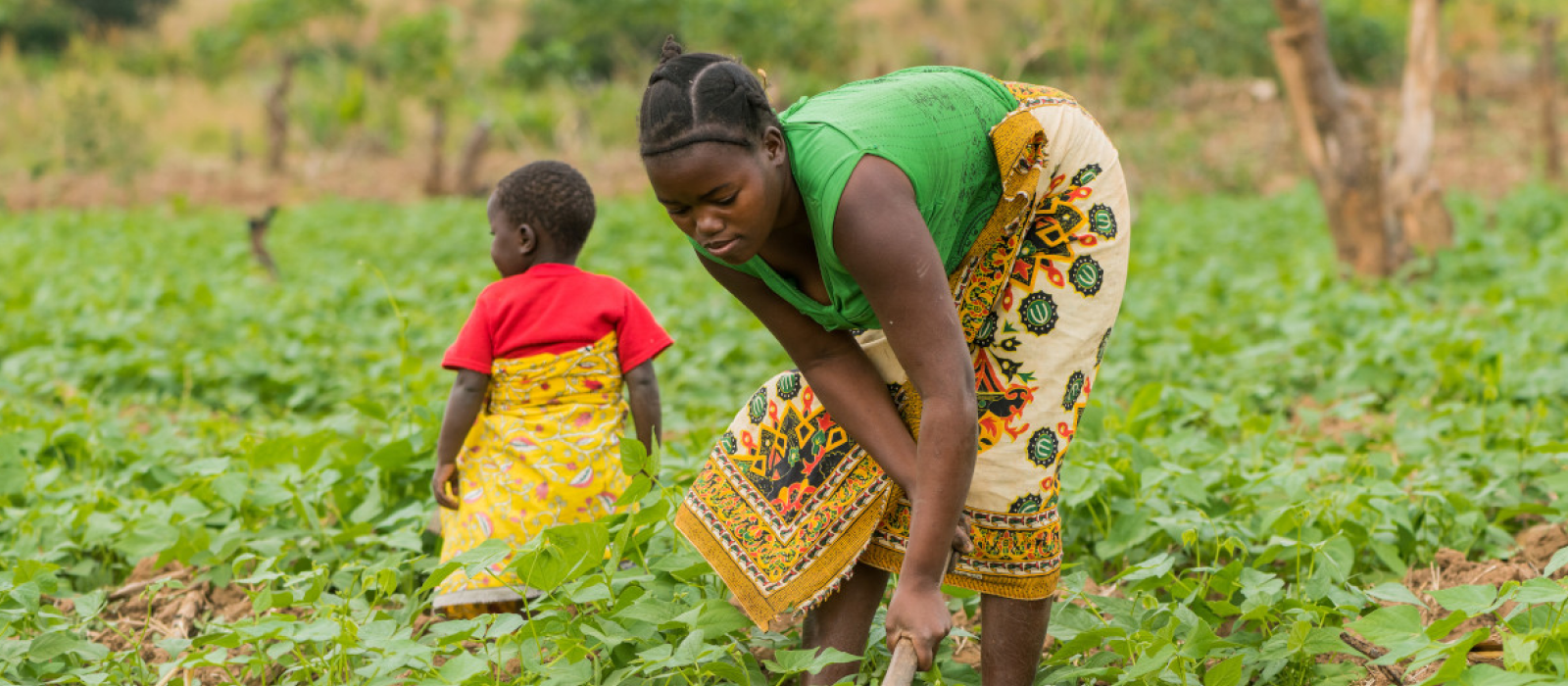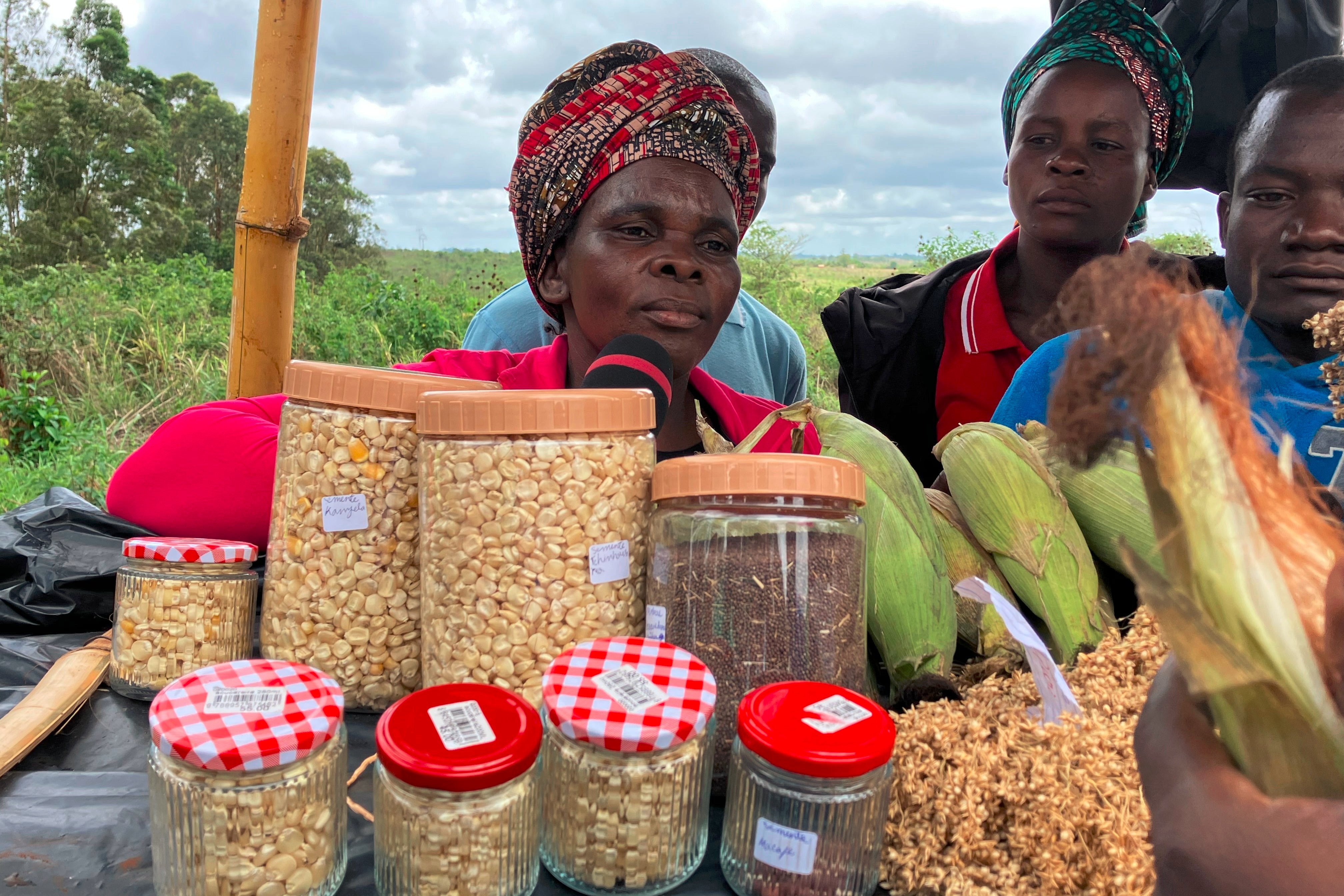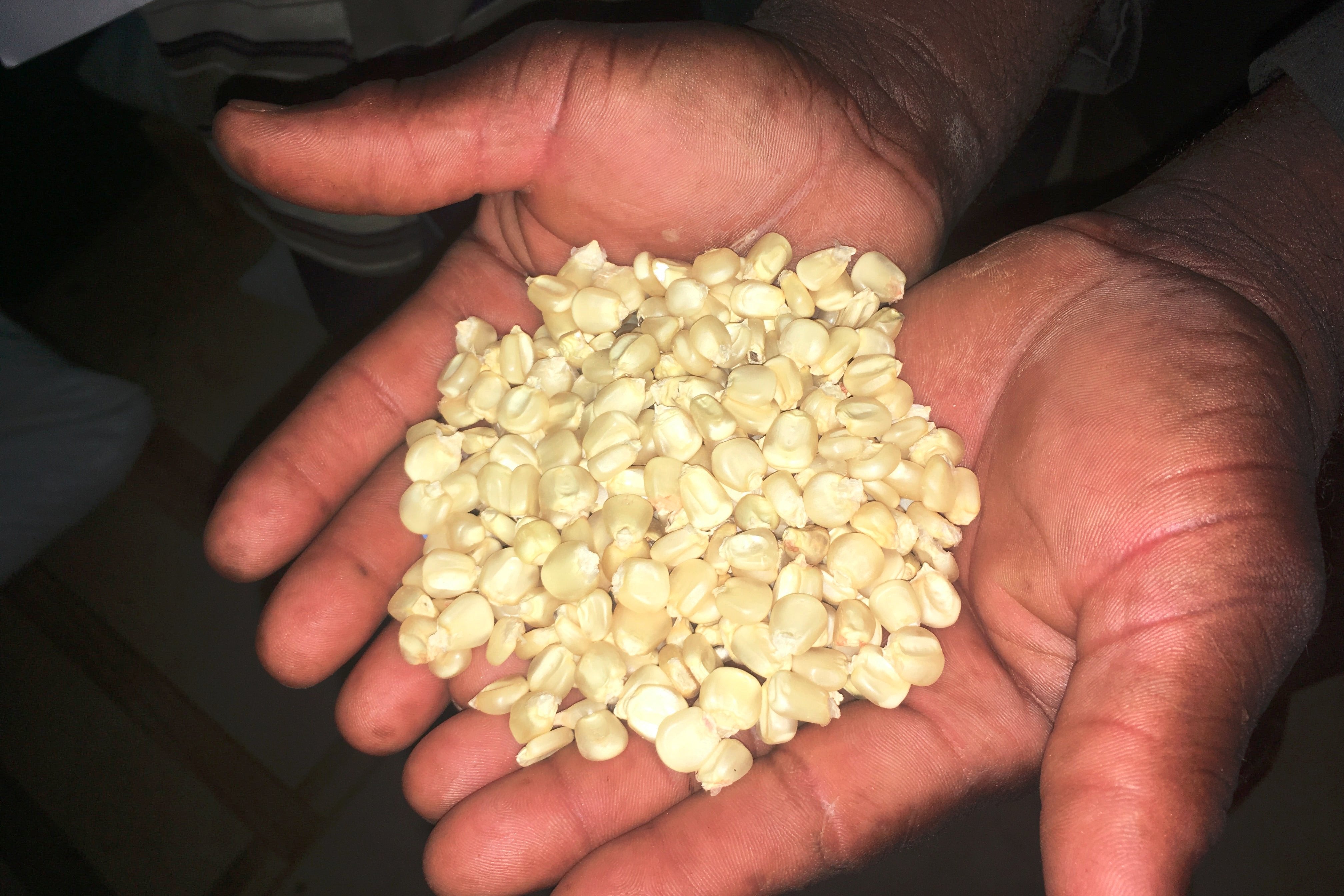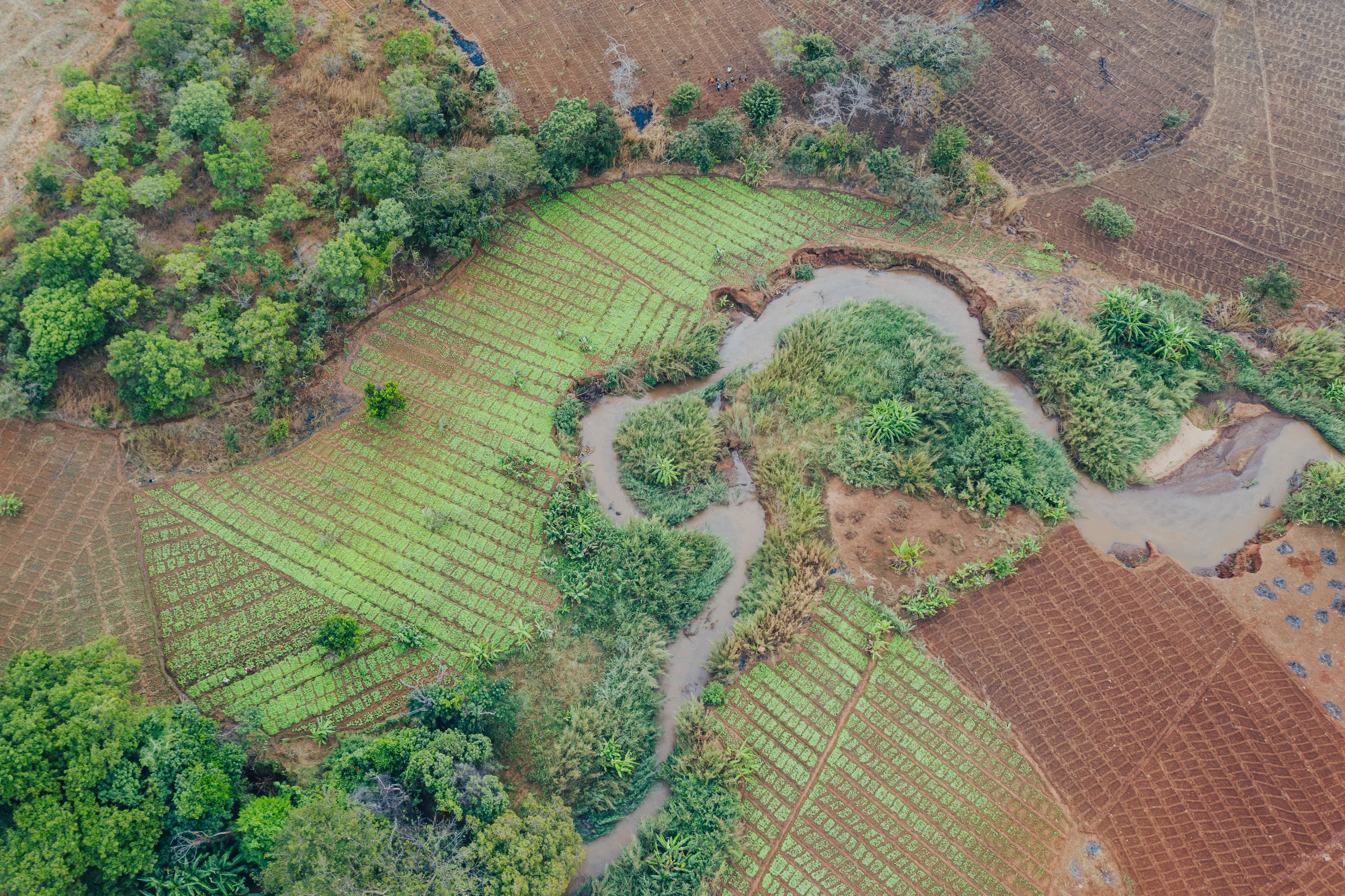Day 2
30 grams of seeds of old varieties for a farming family in Mozambique
 Abundant harvests through old varieties
Abundant harvests through old varieties


A variety of fruits, vegetables and grains to combat hunger


Children's book author Kai Lüftner tells you why your support makes a real difference in Mozambique!
need
Securing food supplies for farming families threatened by hunger and climate change
activity
The farmers' association UNAC creates community fields for and with small farmers, obtains seeds, builds seed stores and organizes seed markets
Measurable performance
Amount of seed of old varieties obtained and number of farming families receiving it for sowing and reproduction
Result
The farming families can provide for themselves, secure their harvests for the future and exchange their self-produced seeds on local markets
Systemically relevant impact
Fewer people are suffering from hunger. Diets are becoming healthier, agriculture is becoming more ecological and biodiversity in the fields is increasing
Hintergrund



The good deed
About Mozambique
Maputo
Capital city
33,897,354
population
as of 2023
608.4
Gross domestic product
per capita per year in USD
as of 2023
0.461
Human Development Index
(Human Development Index)
as of 2023/2024




